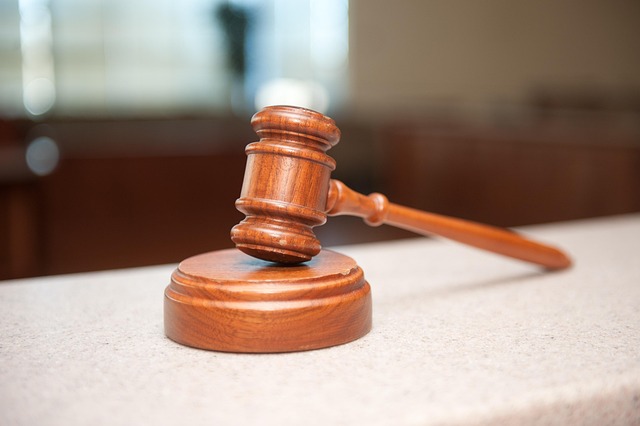Outfitting a conference room for productive meetings and depositions demands an investment in law office equipment. This includes high-quality audio-visual tools, a robust legal document management system, ergonomic seating, well-lit rooms with noise reduction, and access to printing/scanning/copying machines. A professionally designed space with optimal seating arrangements, neutral decor, and strategically placed screens or whiteboards enhances collaboration. In the digital age, cutting-edge law office equipment like video conferencing tools, advanced displays, and recording systems revolutionize legal gatherings by improving accessibility, interactivity, and efficiency.
Equipping a conference room for meetings and depositions is crucial for any legal practice. This comprehensive guide delves into the essential law office equipment, furniture, and technology integrations needed for effective communication and documentation. From understanding the critical role of each item to creating a professional layout, this article ensures your space fosters productivity and prepares you for successful legal depositions. Discover the key elements for transforming your conference room into a dynamic hub for collaborative work and legal proceedings.
- Understanding Essential Law Office Equipment for Effective Meetings
- Creating a Professional Environment: Furniture and Layout Considerations
- Technology Integration: Enhancing Communication and Documentation
- Legal Deposition Preparation: Ensuring Adequate Audio-Visual Support
Understanding Essential Law Office Equipment for Effective Meetings
When equipping a conference room for meetings and depositions, it’s crucial to understand the essential law office equipment that facilitates effective communication and documentation. This includes high-quality audio-visual tools like reliable microphones, video cameras, and screens for clear presentation and recording purposes. Additionally, a robust legal document management system is vital for organizing and storing papers efficiently during meetings and depositions.
Law office equipment such as ergonomically designed chairs and tables ensures comfort and focus for participants. A well-lit room with ambient noise reduction features also plays a significant role in enhancing concentration. Furthermore, having access to printing, scanning, and copying machines allows for quick preparation and dissemination of materials, ensuring that every meeting or deposition runs smoothly and productively.
Creating a Professional Environment: Furniture and Layout Considerations
Creating a professional environment in your conference room is essential for productive meetings and depositions. Start with comfortable yet structured seating arrangements to ensure everyone has optimal visibility and access to necessary equipment. Law office equipment such as high-quality tables, ergonomically designed chairs, and adjustable lighting can significantly enhance focus and participation. A well-organized layout also includes ample space for documents, legal pads, pens, and other essentials.
Consider the overall aesthetic of your conference room, incorporating neutral color schemes and subtle decor to maintain a serious and focused atmosphere. Avoid distractions by strategically placing screens, projectors, or whiteboards to support presentations and discussions. Ensure proper noise control and temperature regulation to create an inviting space that encourages open communication and collaborative problem-solving—key aspects for successful legal meetings and depositions.
Technology Integration: Enhancing Communication and Documentation
In today’s digital age, technology integration is a game-changer for law offices looking to equip their conference rooms. High-quality video conferencing tools enable seamless communication with clients and remote participants, ensuring everyone can actively engage in meetings regardless of their location. This not only enhances accessibility but also promotes efficient collaboration, which is crucial for successful legal practices.
By integrating advanced law office equipment such as smart displays, digital whiteboards, and interactive presentation systems, conference rooms become dynamic spaces that facilitate better documentation and knowledge sharing. These technologies enable real-time document editing, case study analysis, and evidence review, streamlining the preparation and conduct of meetings and depositions. Additionally, robust recording and transcription capabilities ensure accurate documentation for future reference, further enhancing the overall efficiency of legal proceedings.
Legal Deposition Preparation: Ensuring Adequate Audio-Visual Support
When preparing a conference room for legal depositions, ensuring robust audio-visual support is paramount. This involves setting up clear and reliable communication systems to capture every detail during the proceeding. High-quality recording equipment, such as digital recorders or advanced audio interfaces, should be central to the setup. These devices enable precise documentation of the deposition, facilitating accurate transcription later.
Adequate visual aids are equally crucial. Display screens with high resolution and brightness settings are ideal for presenting legal documents, ensuring every attendee can clearly view them. Projectors capable of handling large files and maintaining consistent image quality are essential components of law office equipment in such rooms. This preparation not only enhances the efficiency of depositions but also instills confidence in those involved, knowing that every aspect is meticulously documented.
When equipping a conference room for meetings and depositions, prioritizing the right law office equipment is key. From essential furniture and technology integration to audio-visual support, each element contributes to creating a professional environment conducive to effective communication and thorough documentation. By understanding the core requirements outlined in this article, you’ll be well-prepared to facilitate productive sessions, whether for internal meetings or legal depositions.
